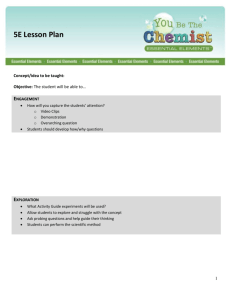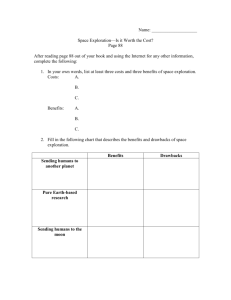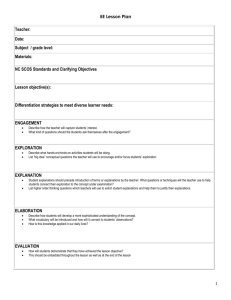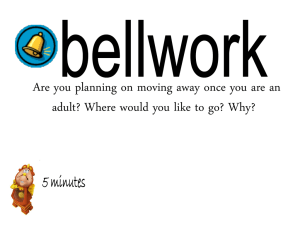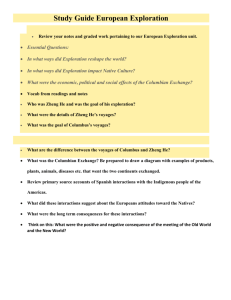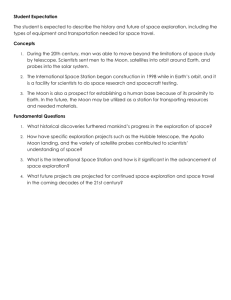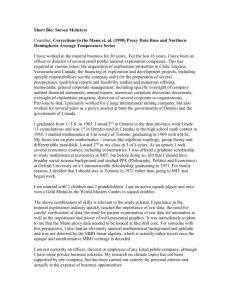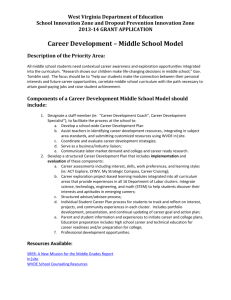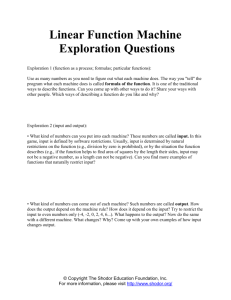Discovering Science and Math Using the 5E Model (ppt)
advertisement
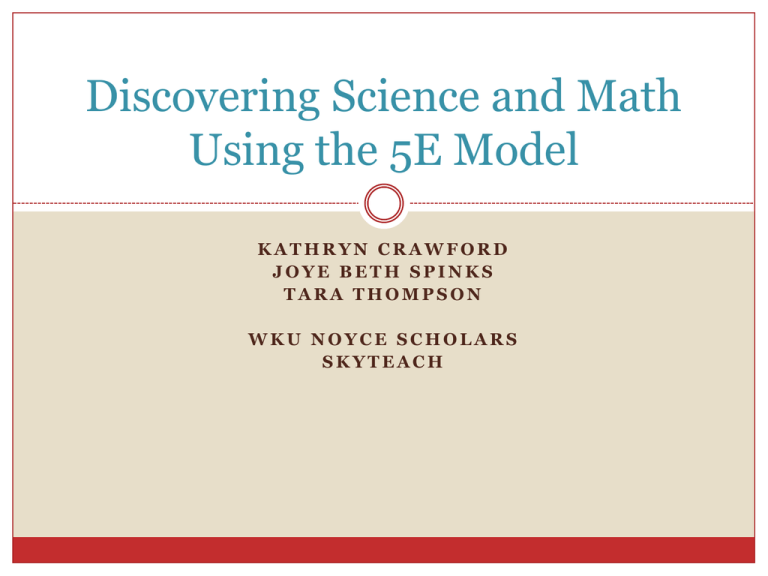
Discovering Science and Math Using the 5E Model KATHRYN CRAWFORD JOYE BETH SPINKS TARA THOMPSON WKU NOYCE SCHOLARS SKYTEACH What are the 5E’s? Engagement Exploration Explanation Elaboration Evaluation Balancing Acts Create Your Own Cell Division Osmosis Probability Statistics Engagement Grab Learner’s Attention Identify Misconceptions Assess Prior Knowledge Sell the lesson to the students! Engagement Ideas Interesting/Thought Provoking Problem Real World Connection Audio or Video Story Discrepant event Cause Disequilibrium or Doubt Demonstration Exploration Pose questions that allow students to test ideas Allow students to work together Students take charge of their own learning Use critical thinking to solve problems Teacher serves as guide Exploration Ideas Solve a problem Construct a model Design or perform an experiment Use authentic data to answer open questions or make decisions Explanation Students share results Clarify the results of the Exploration Teacher guided discussion Correct misconceptions Explanation Ideas Lecture and do notes if needed Class discussion Have students explain significance to each other Peer analysis Readings Elaboration Apply concepts learned in exploration to another situation Real world applications Connect to previous or future lessons Can be eliminated under time constraints Elaboration Ideas Connect to a current event Bring in a professional who uses the concept being learned in their job Show a computer simulation of the concept Can be similar to exploration activities Evaluation Formal or Informal Check for comprehension Can occur at different points in the lesson Evaluation Ideas Exit Slip Ranking Task Writing Prompt Presentation Test Questioning 5E Benefits Easily allows checkpoints for comprehension Sets up for inquiry in the classroom Increases intrinsic motivation (students driven by a “need to know”) Facilitates collaborative learning Provides opportunities for critical thinking Notes About 5E Can easily be stretched to multiple days Can be used with other instructional methods Looking Back Engagement? Exploration? Explanation? Elaboration? Evaluation?
